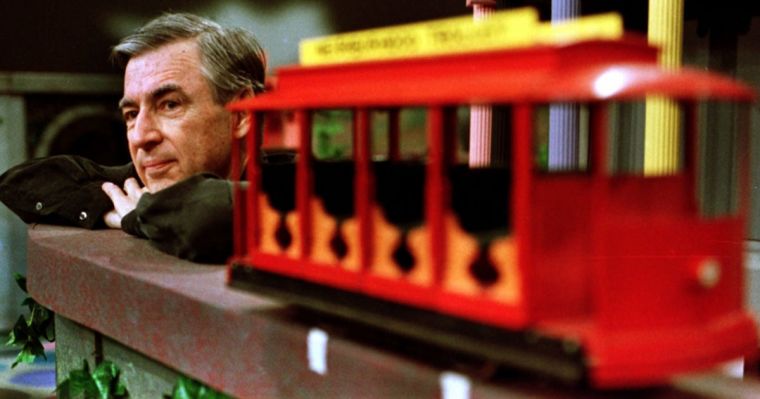2 min to read
Won't You Be My Neighbor?
Won't You Be My Neighbor contains a rich amount of detail that helped me understand Fred Rodgers in a new way.
by Zach Saul

I had honestly forgotten a lot about Mr. Rodgers, his closet full of sweaters, and paper mâché sets. Won’t You be my Neighbor reminded me and everyone else in the theatre about a remarkable - and revolutionary person. The man had an undeniable ability to connect with children in a way most adults dodn’t fully understand. He believed wholeheartedly, and often to fault in people’s goodness (once even stating his goal was to make “Goodness fashionable again”).
So much of his existance is deeply paradoxical, and my experience watching Won’t you be my Neighbor was no different. Mr. Rodgers was describes as being “prophetic” by his siblings, and even as a man who would use his puppet voices to express anger away from the TV set. The reason this fascinates me is Mr. Rodgers Neighborhood wasn’t afraid to tackle difficult topics and told millions of children that “feelings were ok”. Yet the man himself felt sort of repressed - as if he was bearing a divine responsability to set an example. There’s an argument to be made that there’s something disingenuous about his persona, and the brief 3 minutes the film spends discussing Rodgers’ critics exemplifies that. Even his apparent hyper-sensativity to satire hints at a deep seeded desire to remain “puritanical “. However, as the film went on I came to understand him as an evangelist for goodness as opposed to religous morals. Mr. Rodgers’ authenticity came from his insistance on doing things simply. His sets, his production values, his argument to congress, and even his philosophies were simple. Be good to your neighbor, and believe that goodness is possible in everyone. I think Rodgers also deserves to be lauded to teahcing america how to talk to children about tragedy - something we still struggle with in 2018 and is glaringly abscent from TV.
Morgan Neville’s doccumentary carries the spirit of his subject: willing to talk about difficult subjects, but also unfraid of silence. The doccumentary is punctuated with lots of beautiful animations, footage from Fred Rodgers personal life, and even backstage footage from the show. The most effective decision Neville made was to frame Rodgers’ puppets as segments of Fred’s personality, because it made him feel more human and contextualized his message.
The Good: Neville got tremendous access to Rodgers’ family, friends, and personal life for this film - and it contained a really rich amount of detail that helped me understand his life. The animations are gorgeous, and overall the movie does a great job of explaining to viewers the ‘deeper message’ that Fred Rodgers refers to when he worries most people don’t get his show.
The Bad: I wish this movie would have spent more time talking about Rodgers’ critics. The second half does a better job of adressing the opposing viewpoints but as a viewer I wanted to know about how Rodgers responded to adversity and overcame challenges, and a little less about his background in educational pedagogy. It left me wondering if there was some material that the family and/or Rodgers’ camp asked the filmmakers to omit.
| Movie Details | |||||
|---|---|---|---|---|---|
| Studio: | |||||
| Director: | Morgan Neville | ||||
| Written By: | |||||
| Staring: | Fred Rodgers | ||||

Comments